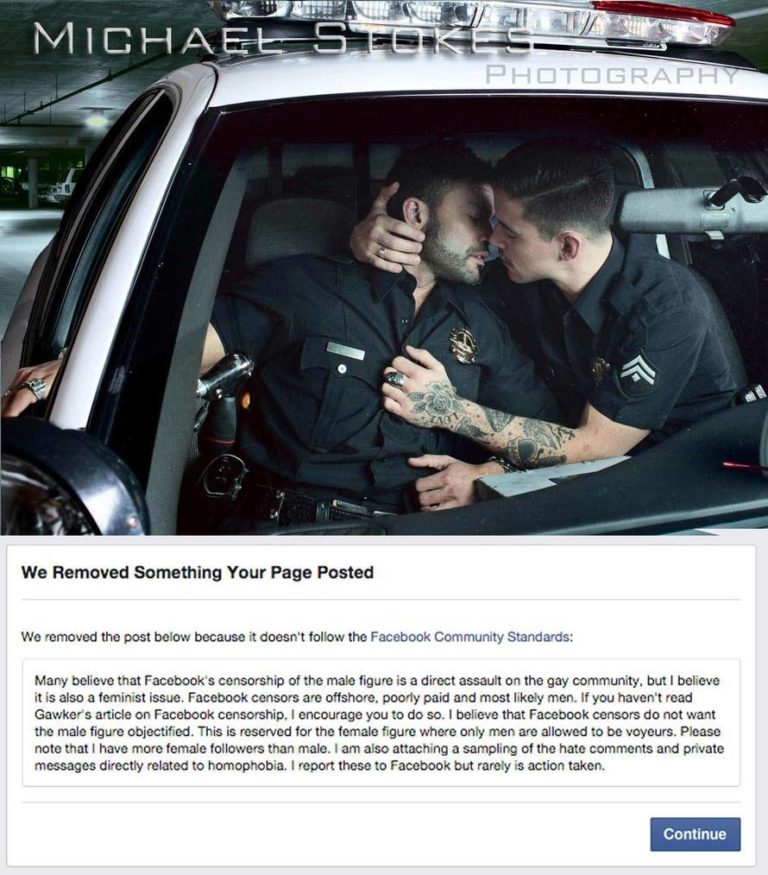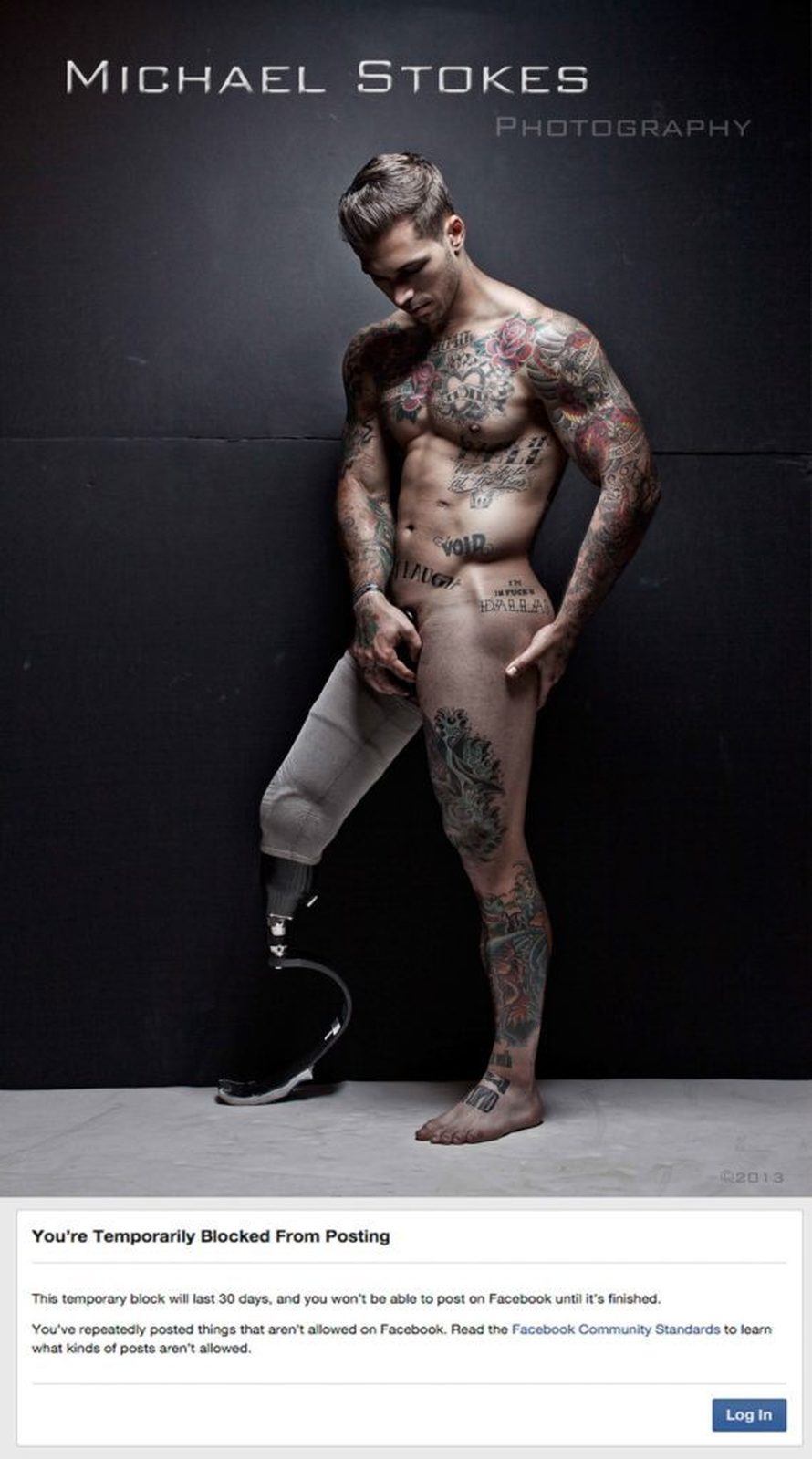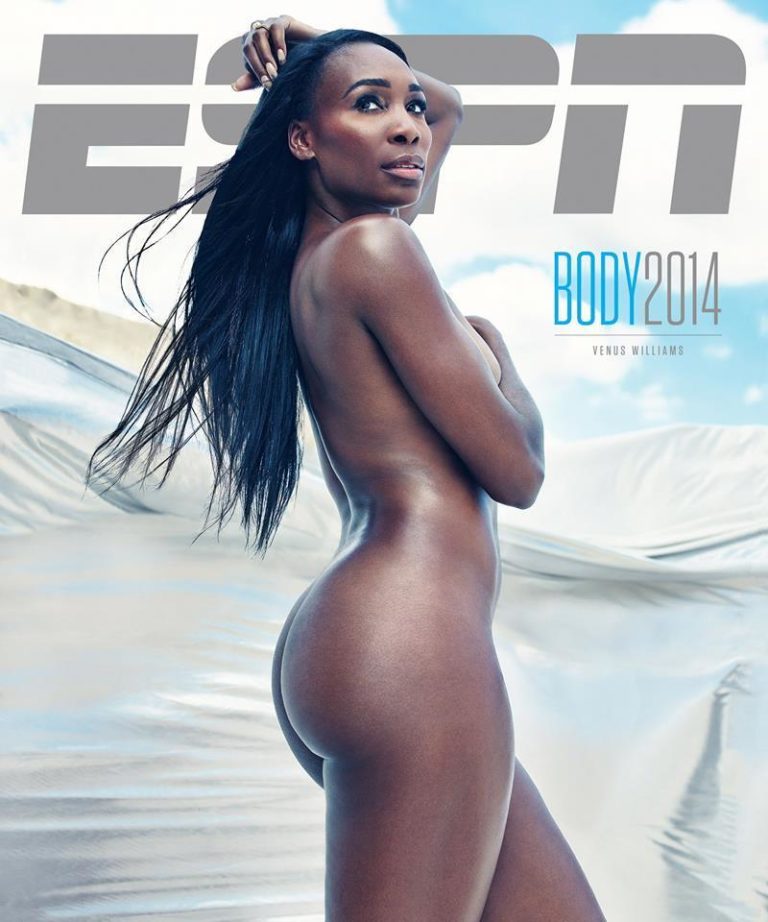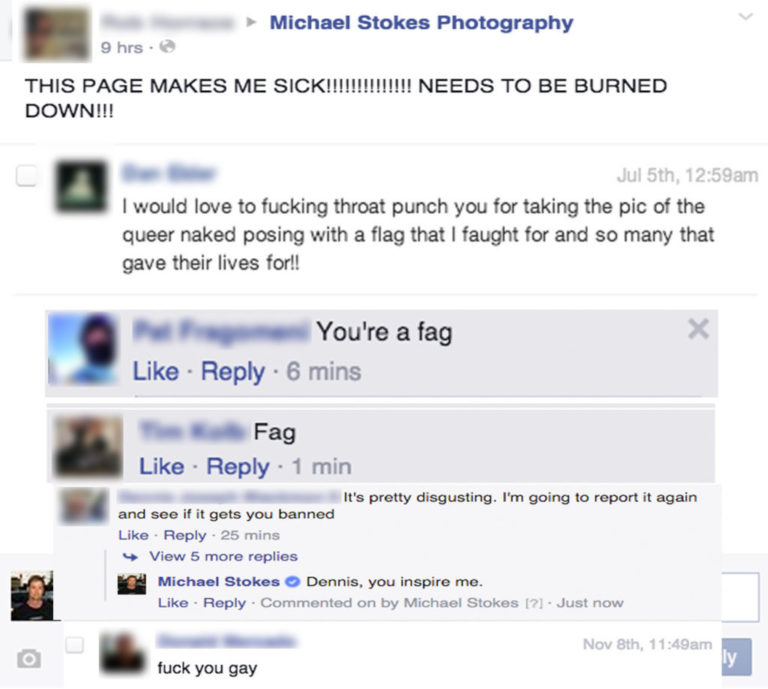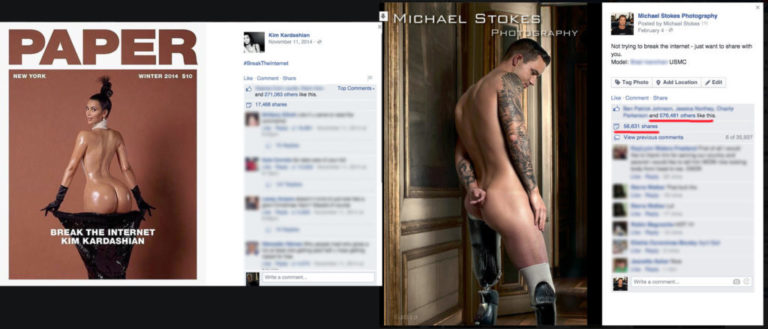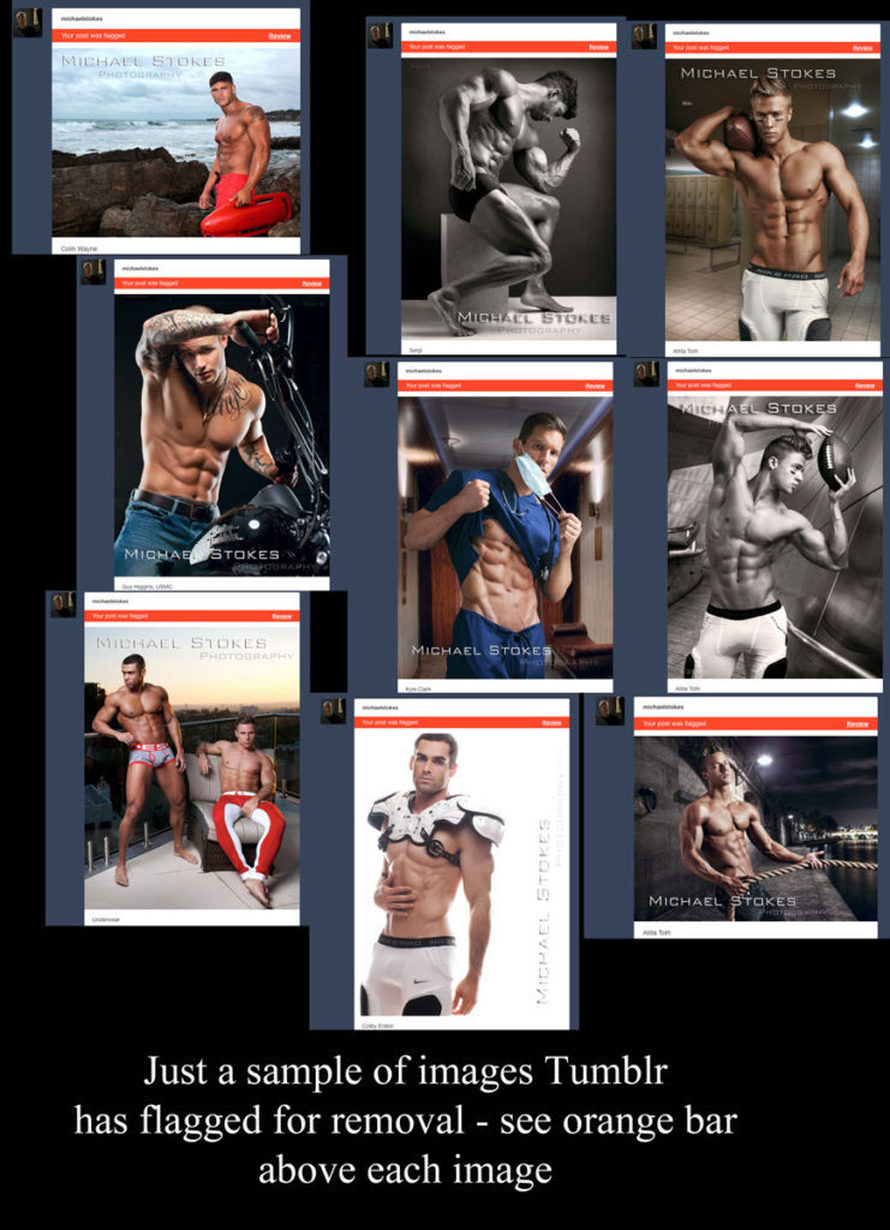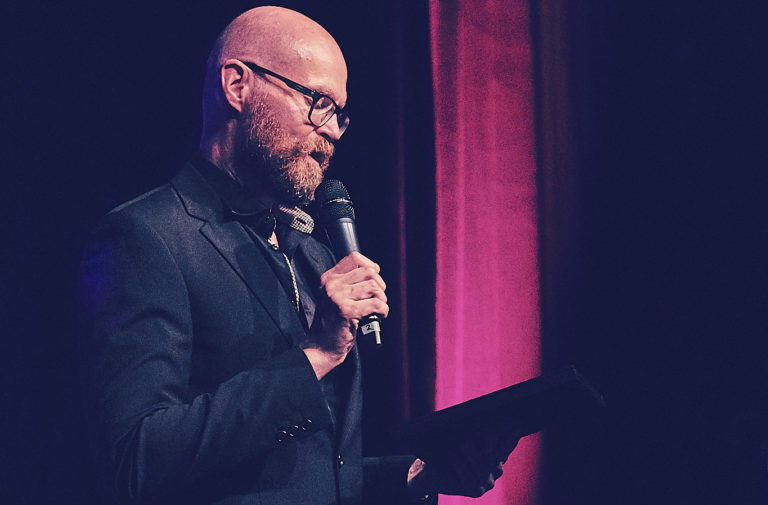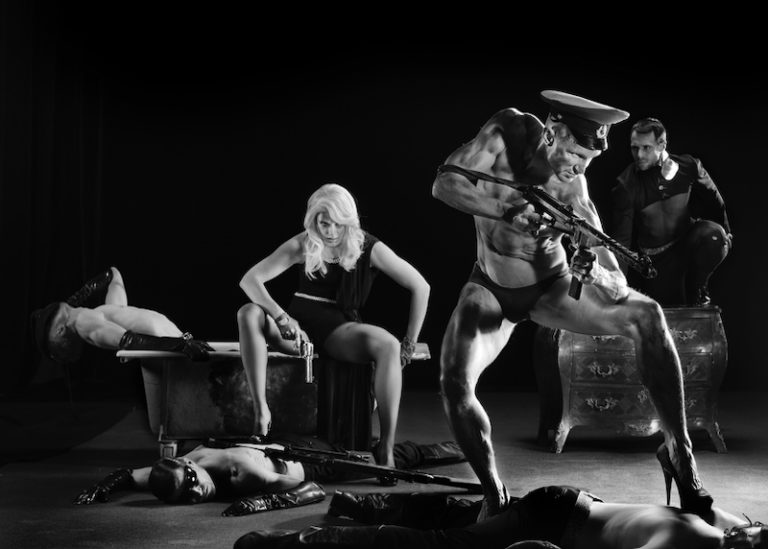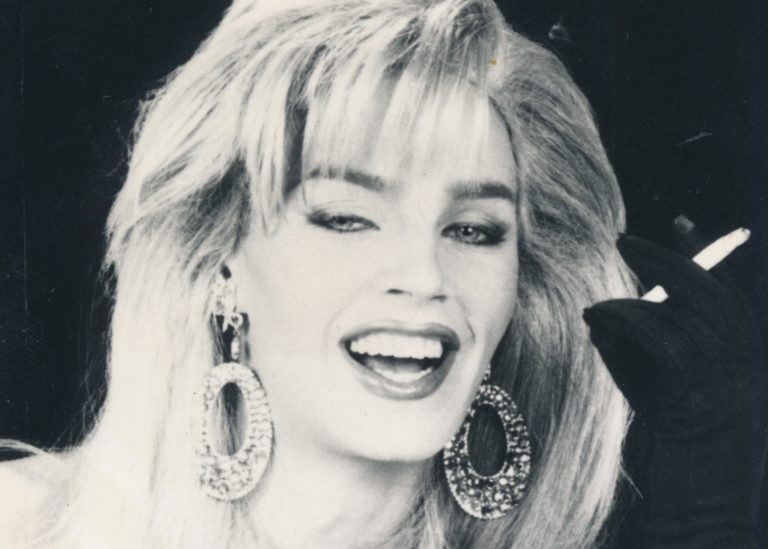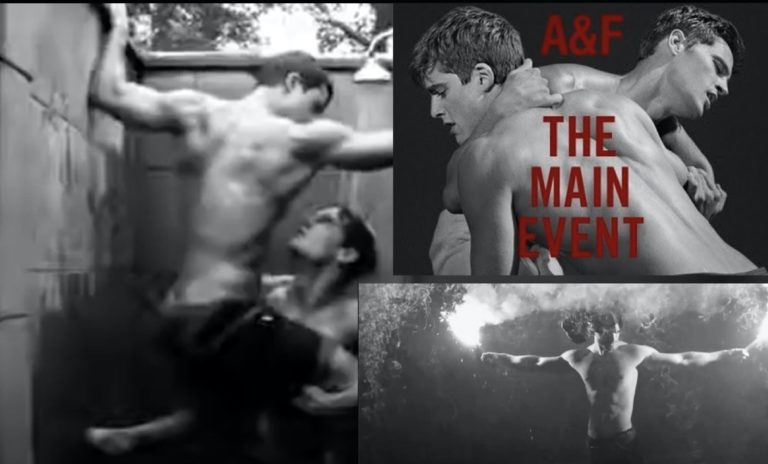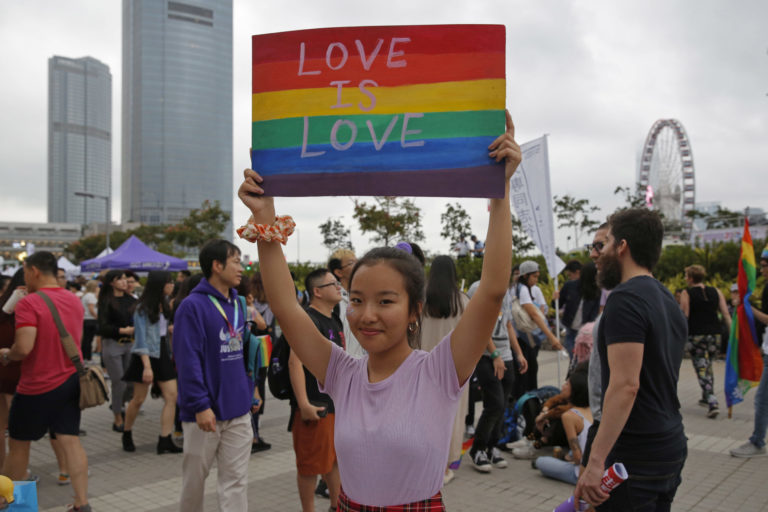Valokuvaaja Michael Stokella on Facebookissa miljoona seuraajaa. Hän valokuvaa miehiä, hänen kuvissaan on paljasta pintaa vaihtelevassa määrin paidattomasta täysin alastomaan. Hänet tunnetaan myös sotaveteraanien kuvaamisesta. Ja siitä hän on joutunutkin vaikeuksiin Facebookin kanssa. Sotaveteraanin kuva, missä näkyy proteesi ja paljasta pintaa oli liikaa Facebookille ja sen monille käyttäjillä. Stoke sai vihantäyteisiä kommentteja ja viestejä. Niihin Facebook ei reagoinut, mutta kuva poistettiin ja Stoken Facebook-tili jäädytettiin. Samanaikaisesti naisen alastomuus on Facebookissa hyväksyttyä, esimerkiksi tunnetun valokuvaajan Helmut Newtonin sivulla näkyy naisen vartalosta kaikki. Sama ei ole mahdollista miehen vartalolle.
Tässä on alkuperäinen Michael Stoke kirjoittama artikkeli, jotta teksti olisi mahdollisimman aito emme kääntäneet sitä. Artikkelissa Stoke toteaa, että Internetiä muokataan nyt heteromiesten mieltymysten mukaiseksi. Mitkä ovat seuraukset.
Part of my morning routine is to wake up the computer, have coffee, and see if Instagram or Facebook have removed any of my photos or, worse yet, deleted my account. Social media sites are important because not only are they my main source of exposure to income, they are my calling card for the models who pose for me.
As a photographer who specializes in the male form, I shoot still images of men in various state of undress, everything from shirtless to full frontal nudity. I’m also known for photographing wounded, amputee veterans in the nude, work that has been the subject of about a dozen doctoral theses and published in various academic journals, with themes from changing perceptions of the handicapped to an analysis of masculinity in America as it relates to war.
My troubles with Facebook began in 2013 over an image I posted of an amputee war veteran, Alex Minsky, nude from the side standing against a black background. The photo went viral because many viewers noticed how beautiful the subject was before they noticed his prosthetic leg. The image also landed me in Facebook jail.
Facebook deleted it and suspended my account for six months. It was only after a huge public outcry and media inquiry did Facebook reinstate the photo, but shortly after reinstating it, they once again removed it, and my account was again banned.
Technically she was clothed because of a tiny string that disappeared in her ass, suggesting she was wearing a g-string. So, why was my image pulled? Because he was an amputee? Because he was a man posing in the nude?
Nude subjects have traditionally been reserved exclusively for the male gaze, so when a man poses nude, to some this implies that the image is homoerotic. For its 2014 Body Issues, ESPNposted a nude Venus Williams on its Facebook page and to this day, famous photographer Helmut Newton’s Facebook page displays female nudes, vaginas, breasts, and nipples all exposed. So besides corporations getting a pass, it seems like the famous also get a pass.
Facebook’s “community standards” seem opposed to male nudity while welcoming some forms of female nudity. In 2015 not only was I subject to multiple bans and dozens of warnings from Facebook, but also hate messages and threats from other Facebook users. Via Facebook I received hostile messages, everything from one-word insults like “faggot” to threats involving physical harm. Using Facebook tools, I reported these threats, but the platform did not act on any of my reports. Instead Facebook diligently continued to remove my photos and ban me from posting.
The homophobic atmosphere that thrived under Facebook’s watch became even more evident when they banned a photo I posted of two fully clothed policemen about to kiss. Ironically I posted the photo with editorial about censorship, and to this day I don’t know if it was removed because of the photo or because I was talking about Facebook censorship.
Facebook censorship became worse, and while claiming to be a neutral platform, Facebook then started removing my photos of men simply because they were shirtless. In 2014, when Kim Kardashian set out to “break the internet,” with her exposed buttocks photo, it was a slap in the face to all artists who had semi-nude images removed and suffered bans from Facebook.
The company blatantly disregarded their own rules to make an exception for a female celebrity. I was so pissed that shortly after her posting, I uploaded a photo of one of my wounded vets, a double amputee who lost both his legs in an IED attack. My veteran model was showing much less than what Kardashian had exposed.
I joked in my caption, “Not trying to break the internet – just want to share with you.” The photo went viral, and within 24 hours it had a reach of 12 million people with 457,000 likes. I was delighted and dismayed at the same time, because with this kind of exposure, I knew I was open to troll attacks in huge numbers.
At the time, Facebook had a tool people could use to report photos, which also manifested an automatic message to me requesting that I remove the photo. The requests poured in, so I knew the photo was being reported left and right. In order to preserve my Facebook account, after a few days I deleted the photo when it reached 576,461 likes and 56,631 shares.
Fortunately, I had other social media sites where I could seek refuge — Twitter, Tumblr, and Instagram. But then Facebook bought Instagram, forcing their terms of service on my account there. My Instagram account never had problems or issues until Facebook bought them. Now both Facebook and Instagram remove photos regularly, and this week when Tumblr announced that it was going to ban NSFW photos, I wasn’t particularly alarmed.
However, when I went to my Tumblr account last week, about 70 percent of my 900 photos had been flagged. Most of the flagged images were men, just shirtless, and almost all of my semi-nude amputee war veterans were flagged as well. It prompted me to remove all my photos from the site. Tumblr has never been a big source of revenue, and with my 60,000 followers there, it is not as significant as my one million followers on Facebook.
I’m fortunate in that I can give Tumblr the middle finger, but many others decided to give Facebook the middle finger, closed their accounts and sought shelter at Tumblr, a site that allowed more freedom of expression. I am quite bothered by the creeping trend towards a consolidation of social media platforms prompting censorship that is designed to appeal to the most generic of all crowds.
And when Facebook cites “community standards,” which community are they referring to? Facebook’s rule in paragraph 13, Violence and Graphic Content states, “We allow graphic content (with some limitations) to help people raise awareness about issues,” which in principle seems to conflict with their rule in Paragraph 14 restricting “the display of nudity or sexual activity because some people in our community may be sensitive to this type of content.” What about the people who are sensitive to violence? Are they not a part of the “community?”

